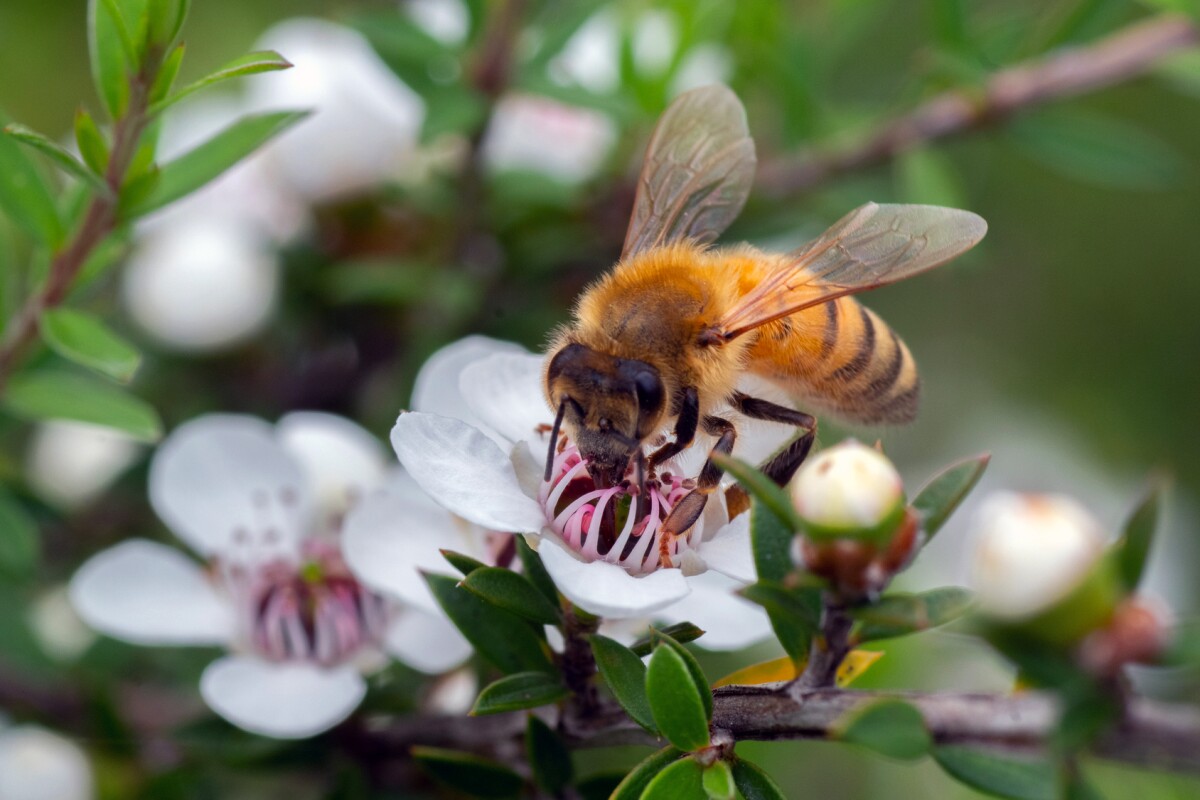Preliminary Studies Suggest Manuka Honey Reduces Breast Cancer Cell Growth by 84%

Depositphotos
Preliminary studies indicate that Manuka honey can decrease breast cancer cell growth by 84% while sparing healthy cells and causing minimal side effects. This suggests potential for developing a natural, non-toxic cancer treatment, either as a supplement or a standalone therapy.
Nutraceuticals—essentially a blend of “nutrition” and “pharmaceuticals” that can sound like marketing jargon—are products that offer both nutritional benefits and health-enhancing properties. Examples include ginseng, green tea, Echinacea, omega-3, and Manuka honey. The latter is made from nectar collected by honey bees from the mānuka tree, a plant native to New Zealand and southeast Australia.
Manuka Honey’s Unique Properties and Its Potential Role in Breast Cancer Prevention and Treatment
Manuka honey has shown antibacterial, antioxidant, and healing properties, likely due to its unique composition compared to other honeys. Preliminary research from UCLA suggests that this nutraceutical may assist in breast cancer prevention and treatment.
Dr. Diana Márquez-Garbán, associate professor of medicine at the UCLA David Geffen School of Medicine and the study’s lead author, noted, “The findings offer promise for developing a natural, less toxic alternative to traditional chemotherapy. While further research is needed to fully explore the benefits of natural compounds in cancer therapy, this study provides a solid foundation for future investigations.“
In cases of estrogen receptor (ER) positive breast cancer—affecting about 60% to 70% of patients—the cancer cells use estrogen to fuel their growth. Although anti-estrogen therapy usually hinders tumor growth, some patients develop resistance, leaving chemotherapy as a last resort.
Manuka Honey Significantly Inhibits ER-Positive Breast Cancer Cell Growth and Enhances Effects of Tamoxifen
In laboratory experiments, researchers grew ER-positive and triple-negative breast cancer cells. They found that Manuka honey and its dehydrated powder significantly inhibited the proliferation of ER-positive cells in a dose-dependent manner compared to controls.
The effect on triple-negative cells was less pronounced. Combining Manuka honey with tamoxifen, a common anti-estrogen drug, greatly reduced ER-positive cell proliferation more effectively than either treatment alone.
Further analysis revealed that Manuka honey reduced blood estrogen levels and estrogen receptors in tumors, and promoted apoptosis (cell death) in cancer cells, disrupting cancer progression.
Manuka Honey Significantly Reduces Tumor Growth in Mice with ER-Positive Breast Cancer
The researchers then tested Manuka honey in animal models. Mice implanted with human ER-positive breast cancer cells and subsequently developed tumors were given Manuka honey orally. The mice treated with honey exhibited a significant reduction in tumor growth—by 84%—compared to the control group, without harming healthy cells.
The researchers concluded that natural compounds like Manuka honey, which show strong antitumor activity and target hormone receptor-positive breast cancers selectively, could be developed as a supplement or a potential alternative to traditional cytotoxic cancer drugs, which often have more widespread adverse effects.
Read the original article on: New Atlas
Read more: Honeybees Can Detect Lung Cancer by Scent










